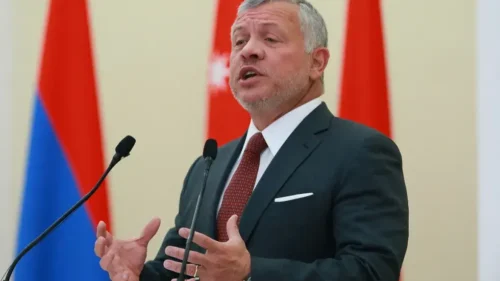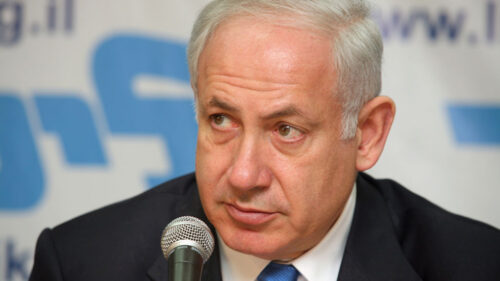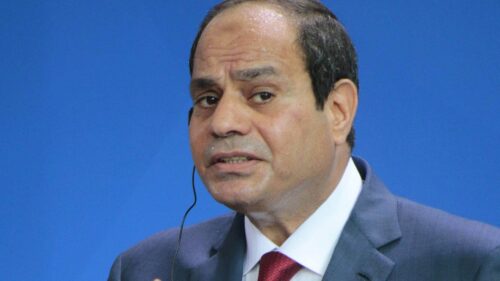Like much else in the Middle East, Gaza’s fault lines are less linear than meets the eye. At first glance, it’s Israel, backed by the United States, against the rest of the world.
March 18’s United Nations Security Council debate spotlighted that divide. US Interim Ambassador Dorothy Shea was the only representative to accuse Hamas rather than Israel of breaking the ceasefire, reigniting hostilities and worsening an already catastrophic humanitarian disaster in Gaza. Similarly, Israel and the US stand alone at first glance in supporting US President Donald Trump’s vision of Gaza as a high-end beachfront real estate development void of much of its indigenous population.
The rest of the international community supports the Arab world’s alternative plan that calls for an end to the war, an Israeli withdrawal from Gaza, the creation of a Palestinian interim administration of the Gaza Strip and the temporary resettlement of Gazans in safe zones in Gaza. Meanwhile, the war-ravaged territory is reconstructed to the tune of $53 billion.
So far, it all seems straightforward. But dig a little deeper, and the fault lines begin to blur.
UAE–Israeli alignment
A series of persistent but unconfirmed reports suggest that the United Arab Emirates may be privately more in sync with Israel than with its Arab brethren regarding Hamas and Gaza. Israeli Prime Minister Benjamin Netanyahu was not the only Middle Eastern leader infuriated by a meeting last month between a senior US negotiator and Hamas. It was the first ever face-to-face US engagement with the group, which is an offshoot of the Muslim Brotherhood and a terrorist organization by US designation. So was UAE President Mohammed Bin Zayed, a staunch opponent of Islamist groups.
UAE ambassador to the US, Yousef al-Otaiba, a close associate of Bin Zayed, lobbied US President Donald Trump’s administration to reject the Arab plan for Gaza drafted by Egypt and adopted unanimously at a March 4 Arab summit in Cairo. Privately, UAE officials have complained that the plan failed to call for the disarming of Hamas and its removal from Gaza. Bin Zayed did not attend the conference, sending his deputy prime minister instead.
In February, al-Otaiba described Trump’s call for the resettlement of Gaza’s 2.3 million Palestinians as “difficult” and “challenging.” But when asked whether the UAE was working on a plan for Gaza, al-Otaiba responded, despite Egypt’s draft of the Arab plan already having been circulated, “Not yet. I don’t see an alternative to what’s being proposed. I really don’t.”
Meanwhile, Emirates Leaks, a mysterious website critical of the Emirati government, asserted that the UAE had unsuccessfully attempted to persuade South Africa to withdraw or at least weaken the genocide case against Israel it filed in the International Court of Justice. The report could not be independently confirmed.
Lines blur further
In an even greater blurring of the fault lines, the UAE, alongside Saudi Arabia and Qatar, is the largest shareholder in an investment firm headed by Jared Kushner, Trump’s son-in-law, with stakes in Israeli financial services group Phoenix Holding. The Holding is invested in businesses listed by the United Nations Human Rights Council as operating in West Bank settlements deemed illegal under international law.
In a seemingly bizarre muddying of the lines, Netanyahu has kicked up a political storm with his firing of Ronen Bar, the head of Israel’s domestic Shin Bet security service. He did this in part for Bar’s investigating members of the prime minister’s staff for their dealings with Qatar.
Netanyahu’s former spokesperson, Eli Feldstein, allegedly worked for a Doha-based firm that recruited Israeli journalists to write pro-Qatar stories. Two other Netanyahu staffers, Jonatan Urich and Yisrael Einhorn, allegedly helped Qatar bolster its image ahead of the Gulf state’s hosting of the 2022 World Cup.
In late March, Israeli police detained two suspects in the case accused of bribery, fraud, breach of trust, money laundering and illegal contact with a foreign agent. The suspects were not identified under a gag order placed on investigation details.
The staffers’ activities countered Netanyahu’s long-standing efforts to tarnish Qatar’s reputation and undermine its mediation role. The staffers encouraged Qatar to fund the Hamas government in Gaza to weaken the Palestinian polity by perpetuating the rift between the group and the West Bank-based, internationally recognized Palestine Authority.
The blurred lines contribute to Israel’s ability to do what it wants with the Trump administration’s backing, even if its actions violate agreements. One such agreement is the Gaza ceasefire, negotiated with the help of the US, Qatar and Egypt, and accepted by Israel. The blur also enhances Israel and the US’s ability to blame Hamas for the ceasefire’s collapse.
Extending the ceasefire
In the latest iteration of efforts to get the ceasefire back on track, Hamas agreed to an Egyptian proposal to reinstate the Gaza ceasefire. Per the proposal, Hamas must swap up to six Israeli hostages and the remains of an unspecified number killed during the war. In exchange, Israeli officials will release Palestinians incarcerated in Israel, initiate negotiations on ending the war and lift the Israeli blockade. This blockade has prevented humanitarian aid from entering Gaza and cut off the supply of electricity in recent weeks.
Speaking to Al Jazeera, Hamas Political Bureau member Bassem Naim said the group’s acceptance of a 50-day extension of the ceasefire’s first phase was dependent on the mediators, the US, Qatar and Egypt, guaranteeing that all parties would engage in serious second-phase negotiations that would bring an end to the war and Israel’s withdrawal from the Strip.
The problem is that whatever guarantee the mediators may give is unlikely to be worth the paper it would be written on. The US is the only country capable of pressuring Israel to comply.
“There is no force on the planet prepared to give Hamas assurances that if they give up their only card — the dead and living hostages — Israel would agree to all of its obligations. Hamas understands what Trump and Netanyahu are doing with the phases. They’re stripping Hamas of the cards it has left,” said veteran Middle East peace negotiator Aaron David Miller, who worked for both Democratic and Republican administrations.
[The Turbulent World first published this piece.]
[Lee Thompson-Kolar edited this piece.]
The views expressed in this article are the author’s own and do not necessarily reflect Fair Observer’s editorial policy.
Support Fair Observer
We rely on your support for our independence, diversity and quality.
For more than 10 years, Fair Observer has been free, fair and independent. No billionaire owns us, no advertisers control us. We are a reader-supported nonprofit. Unlike many other publications, we keep our content free for readers regardless of where they live or whether they can afford to pay. We have no paywalls and no ads.
In the post-truth era of fake news, echo chambers and filter bubbles, we publish a plurality of perspectives from around the world. Anyone can publish with us, but everyone goes through a rigorous editorial process. So, you get fact-checked, well-reasoned content instead of noise.
We publish 2,500+ voices from 90+ countries. We also conduct education and training programs
on subjects ranging from digital media and journalism to writing and critical thinking. This
doesn’t come cheap. Servers, editors, trainers and web developers cost
money.
Please consider supporting us on a regular basis as a recurring donor or a
sustaining member.
Will you support FO’s journalism?
We rely on your support for our independence, diversity and quality.







Comment